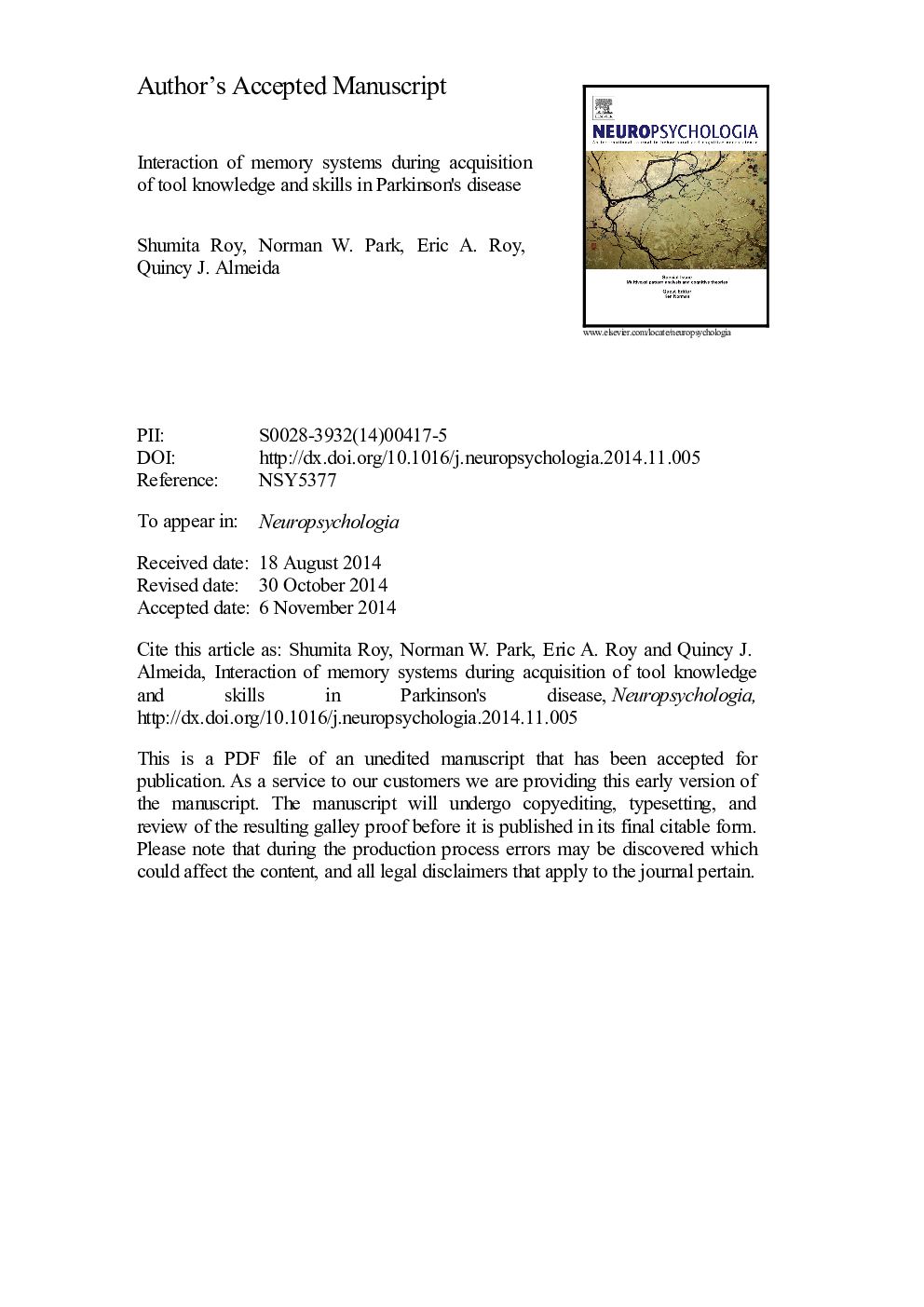| Article ID | Journal | Published Year | Pages | File Type |
|---|---|---|---|---|
| 7320616 | Neuropsychologia | 2015 | 49 Pages |
Abstract
Previous research suggests that different aspects of tool knowledge are mediated by different memory systems. It is believed that tool attributes (e.g., function, color) are represented as declarative memory while skill learning is supported by procedural memory. It has been proposed that other aspects (e.g., skilled tool use) may rely on an interaction of both declarative and procedural memory. However, the specific form of procedural memory underlying skilled tool use and the nature of interaction between declarative and procedural memory systems remain unclear. In the current study, individuals with Parkinson's disease (PD) and healthy controls were trained over 2 sessions, 3 weeks apart, to use a set of novel complex tools. They were also tested on their ability to recall tool attributes as well as their ability to demonstrate grasp and use of the tools to command. Results showed that, compared to controls, participants with PD showed intact motor skill acquisition and tool use to command within sessions, but failed to retain performance across sessions. In contrast, people with PD showed equivalent recall of tool attributes and tool grasping relative to controls, both within and across sessions. Current findings demonstrate that the frontal-striatal network, compromised in PD, mediates long-term retention of motor skills. Intact initial skill learning raises the possibility of compensation from declarative memory for frontal-striatal dysfunction. Lastly, skilled tool use appears to rely on both memory systems which may reflect a cooperative interaction between the two systems. Current findings regarding memory representations of tool knowledge and skill learning may have important implications for delivery of rehabilitation programs for individuals with PD.
Related Topics
Life Sciences
Neuroscience
Behavioral Neuroscience
Authors
Shumita Roy, Norman W. Park, Eric A. Roy, Quincy J. Almeida,
